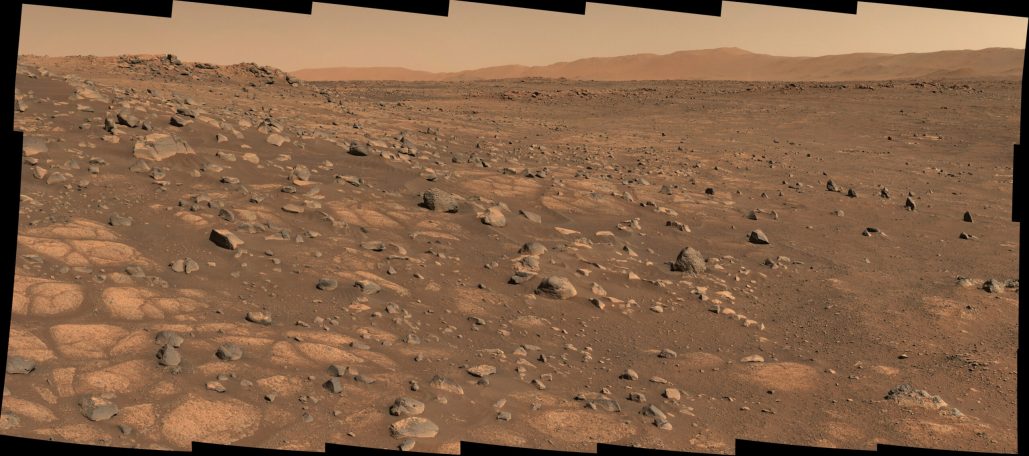Potential Survival of Pathogenic Bacteria on Mars

Scientists warn that bacteria brought to Mars on human bodies could potentially survive and thrive in the harsh conditions of the Red Planet. Recent experiments have exposed four common microorganisms that cause diseases to Mars-like environment, characterized by lack of water, little atmospheric pressure, lethal ultraviolet radiation, and harmful salts. Remarkably, the bacteria remained alive and in some cases even grew in the simulated Martian sands, according to findings published in the January Astrobiology journal,
These discoveries may impact astronaut health considerations and the efforts necessary to avoid contaminating other planets. Samantha Waters, a microbiologist at Mercer University, who did not participate in the study, affirmed that bacteria are extremely resilient organisms that have managed to survive on Earth for billions of years.
In the past, scientists have predominantly focused on the survivability of extremophile organisms on Mars — organisms that inhabit areas on Earth exposed to high levels of radiation, salt, temperature changes or dryness. Nevertheless, in 2020, scientists discovered that several bacterial species living on or inside the human body could grow in an environment resembling the poor nutrient conditions found in meteorites.
This intriguing discovery prompted the same scientists, together with microbiologist Tommaso Zaccaria, to test how these microorganisms would fare in the harsh Martian environment. They exposed colonies of Burkholderia cepacia, Klebsiella pneumoniae, Pseudomonas aeruginosa, and Serratia marcescens, all usually harmless human bacteria that can become pathogenic when stressed, to simulated Martian conditions.
Zaccaria, from the German Aerospace Centre, admitted that they initially assumed the regolith, or Martian-like soil, would limit cell growth due to its toxicity, but were surprised when the bacteria displayed just the opposite behavior. Particularly, P. aeruginosa was able to steadily grow for upto 21 days.
The team is currently working on understanding the survival mechanisms of these bacteria. It's suspected that they might've discovered small, protected pockets in the regolith with sufficient water and nutrients for their survival, Zaccaria suggests. The team also intends to study how the human immune system, which is known to suffer stress and dysregulation during spaceflights, reacts to such bacteria.
The findings emphasize the importance of human missions to Mars being well-equipped with a wide range of antibiotics to combat the disease-causing bacteria that could survive and possibly mutate on Mars and then reinfect humans. Also, Zaccaria recommends setting aside specific regions on Mars akin to national parks, where only robotic vehicles could venture to avoid contaminating Mars with human bacteria.
Despite the potential dangers, Waters is optimistic that human ingenuity will find suitable solutions to these problems and that this should not deter us from exploring beyond our own planet. She is hopeful that diligent efforts will culminate in exciting new discoveries and historical milestones.




